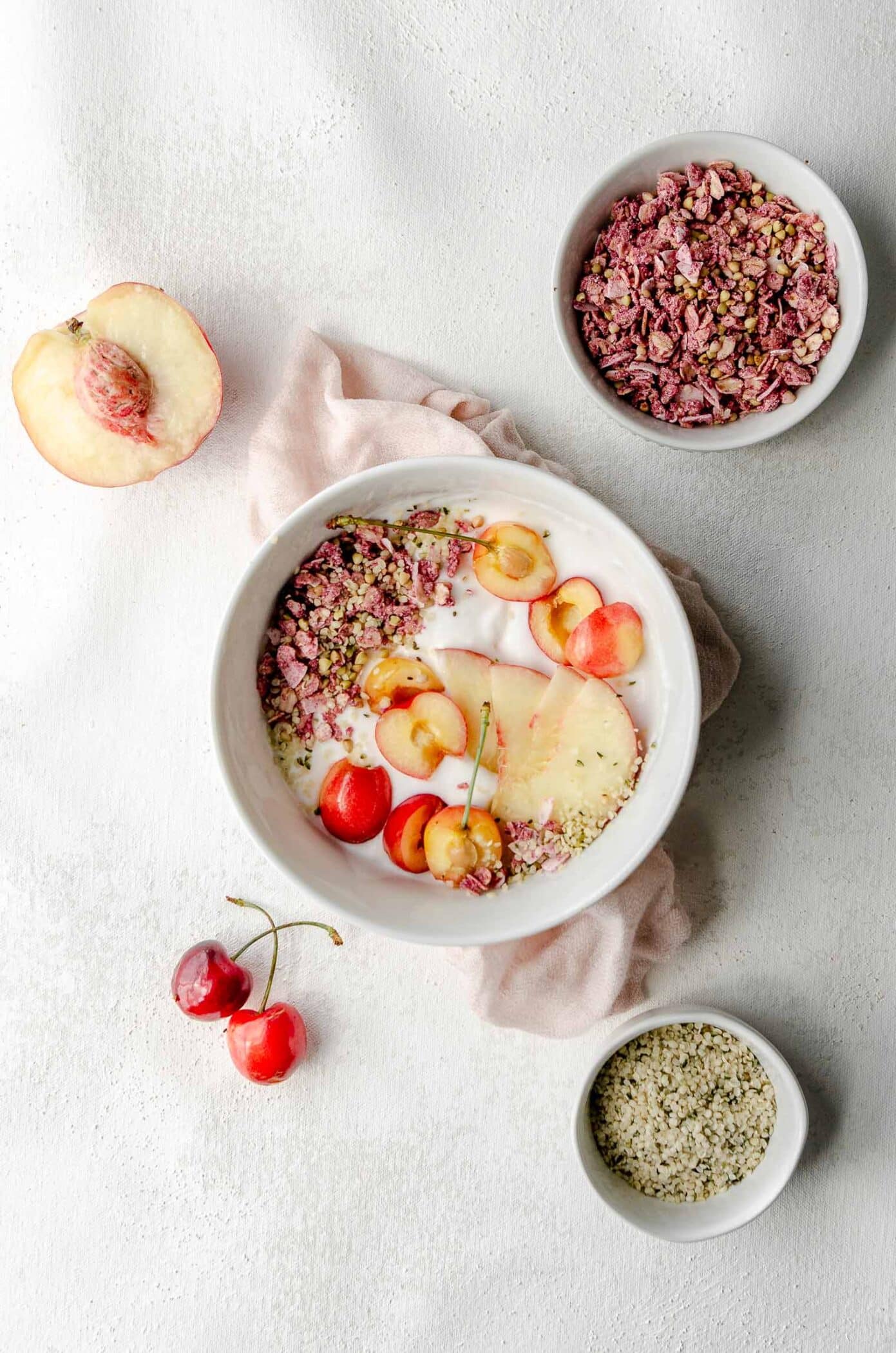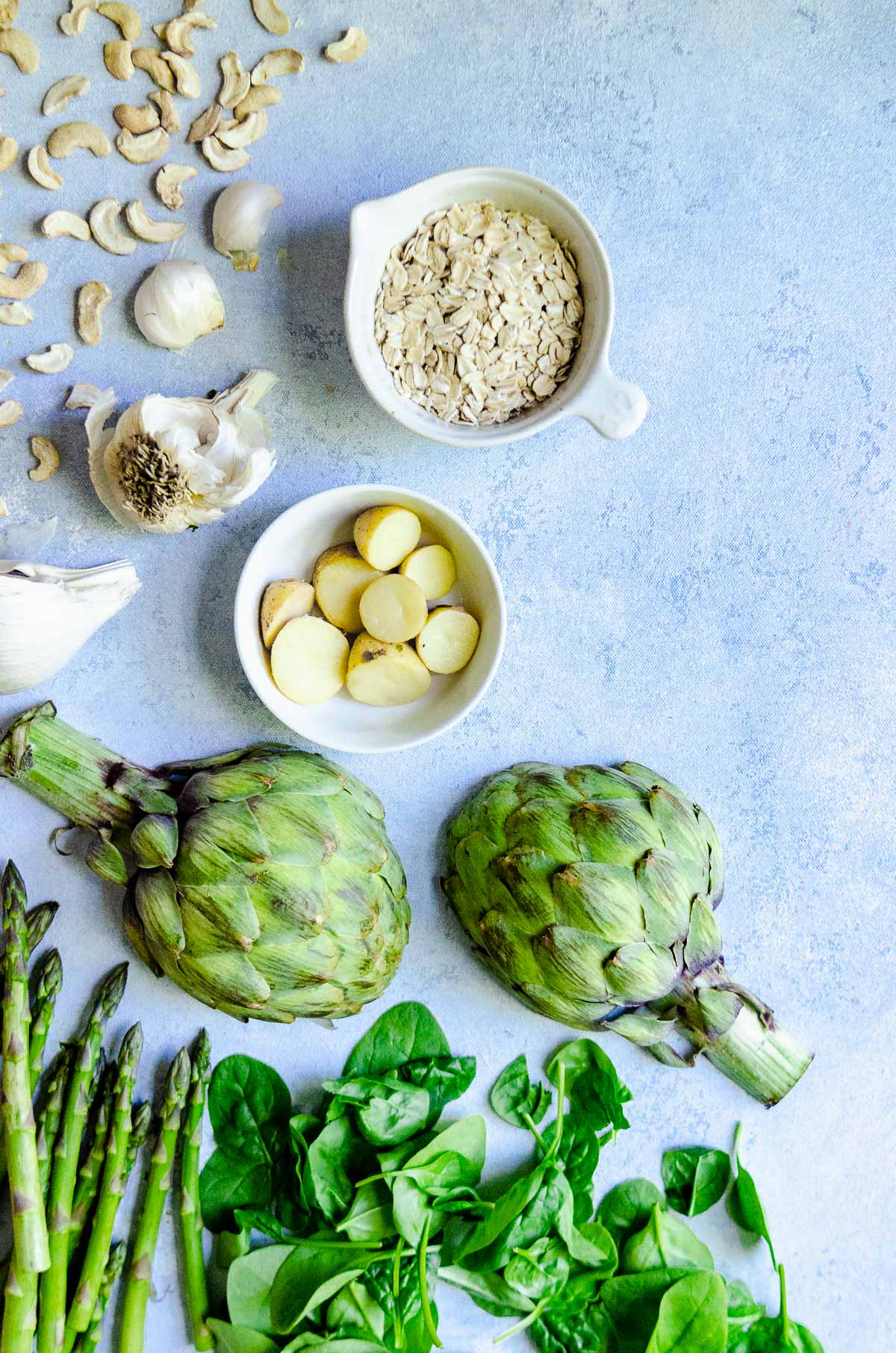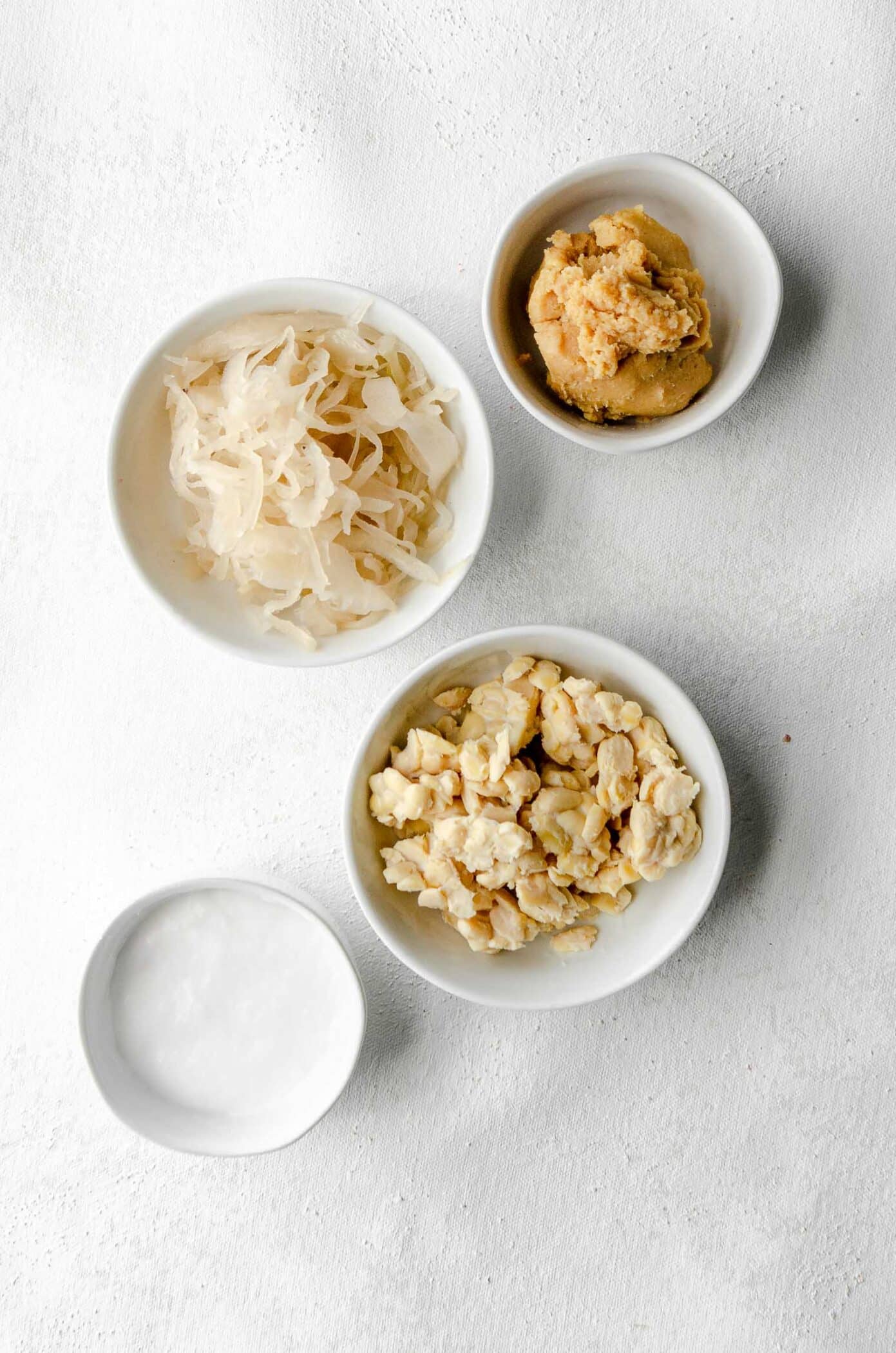You may be hearing a lot lately about “gut health” and your gut microbiome. In this “primer”, I’m going to help simplify this exciting area of science, highlight why you need to be paying attention to your gut health, and the things you can start doing today to help support or restore your gut microbiome.

The health of our gut microbiome is vital to our overall health. We have a symbiotic relationship with the microbes that live on and in our bodies. By focusing specifically on our gut microbiome, and what we are putting into our bodies to feed that microbiome, we have the potential to greatly impact our overall health and wellness from our skin, to our weight, to reducing autoimmune disease!
What is the Microbiome?
Did you know that we are actually not living alone in our bodies?? Our bodies are filled with trillions of microorganisms – which include bacteria, fungi, parasites and viruses – which form “microbiomes” on our skin, in our mouths and other body parts. The microbes on our body outnumber our cells 10-1!
“The microbiome is the community of microorganisms (such as fungi, bacteria and viruses) that exists in a particular environment. In humans, the term describes the microorganisms that live in or on a particular part of the body, such as the skin or gastrointestinal tract.”
– Genome.gov
What is the Gut Microbiome?
The largest population of microbes is found in our intestines – known as the gut microbiome or gut microbiota (the microorganisms that live in your gut microbiome). The gut microbiome varies from person to person and really in the last 20 years has science begun to uncover the significance of the gut microbiome on almost all aspects of our health.[R]
Everybody has a unique gut microbiome, just like we all have unique genomes. You are first exposed to microbes in your mother’s womb and your microbiome continues to be affected by your environment, medications, and diet (more on that later!).
What Does the Microbiome Do?
The microbiome consists of microbes that are both “good” and “bad” – most bacteria help the human body but some can promote disease. In a healthy body, there is a balance of bacteria. But if there is a disturbance in that balance—brought on by illness, certain diets, or bacteria-destroying medications—dysbiosis occurs, stopping these normal interactions. As a result, the body may become more susceptible to disease. [R]
Our gut microbiota has been shown to affect:
- appetite and metabolism [R]
- inflammation [R]
- hormones [R]
- cancer growth [R]
- allergies [R]
- lipids [R]
- how we utilize nutrients [R]
- mental health [R]
- response to chemotherapy and immunotherapy [R], [R]
Signs Your Gut Microbiome Isn’t Healthy
If your gut isn’t healthy, your body sends some obvious signals such as:
- gas
- bloating
- irregularity
- diarrhea or constipation
However, gut issues can also manifest as:
- sugar cravings
- poor concentration or memory
- fatigue
- acne
- weight gain
- inability to lose weight
An imbalance of gut microbes have been linked to gastrointestinal disorders (such as IBS) and wider systemic inflammatory disorders such as diabetes and obesity.
What Causes Gut Issues?
Poor diet is one of the biggest causes of gut imbalance (which makes sense if you think about how its our gut that comes into direct contact with what we put in our body and breaks down our food). As our food digests, our microbiome changes in real time! Some “gut-busting foods” include:[R]
- processed foods (boxed, packaged with additives such as preservatives and emulsifiers)
- sugar (high intensity sweeteners, excess sugar)
- excess starches
Other factors which can contribute to gut issues include:
- antibiotic use – kills the good bacteria along with the bad
- smoking
- alcohol use
- antacids (such as Pepcid) – alters the pH in the gut, and eliminate the first line of defense against ingested pathogens which gives “bad” bacteria an opportunity to get to the gut and disrupt good bacteria.
- NSAIDs – disrupt the normal balance of bacteria living in your gut
- travel – disrupted sleep cycles in addition to taking in foods which have microbes which are “foreign’ to your body can disrupt your bacteria balance
Can You Restore Your Gut Microbiome?
The good news is that you can absolutely manipulate your gut microbiota through nutrition and health interventions! There have been multiple studies which have shown how making changes to the consumption and lifestyle habits resulted in remarkable differences in a person’s gut microbiome in just two weeks.[R]
How To Improve Gut Health Naturally
Research has shown that increasing “prebiotic” and “probiotic” foods has several beneficial effects on our health and that diet has a very strong influence on the composition of our gut microbiota. What is still unclear is whether natural foods are better than probiotic supplements. While you can supplement with a high-quality probiotic (here’s my favorite), you can’t “supplement” a bad diet. Here are steps you can start taking to improve your guy health naturally.
What to Avoid
- Highly processed or packaged foods
- Refined grains, especially wheat
- Sugars, especially high fructose corn syrup, and artificial sweeteners
- Refined oils and fats, especially soybean and corn oil
- Overuse of antibiotic drugs (use when absolutely necessary)
- Steroids
- Anti-inflammatories such as ibuprofen, Advil, aspirin
- Acid blockers, such as Tums

Prebiotics
The good bacteria in our gut is fed by plant-based foods that are high in fiber. By eating these foods we allow the good bacteria to thrive and starve the bad bacteria. Below is a partial list of some “prebiotic” foods to incorporate into your diet to ensure you are feeding your good bacteria.
- Leafy green vegetables (of course!)
- Onions
- Whole oats (not the packaged kind with sugar)
- Garlic
- Leeks
- Asparagus
- Artichokes
- Sunchokes (or jerusalem artichokes)
- Nuts and seeds
- Legumes/pulses
- Apples (buy organic!)
- Under-ripe bananans
- Potatoes and rice that have been cooked and then cooled

Probiotic/Fermented Foods
- Naturally fermented sauerkraut
- Pickled vegetables (including organic pickles)
- Kimchi (the Korean version of fermented vegetables or fruit)
- Kefir (fermented milk—unsweetened only)
- Sourdough bread
- Miso
- Tamari
- Tempeh
- Tofu
- Unpasturized apple cider vinegar
- Coconut yogurt
The gut microbiome should be considered a key aspect in nutrition. By targeting the microbiome with probiotic foods and dietary fiber, people could greatly improve their health from lowering in incidence of auto-immune disease to reducing obesity! This article just really scratches the surface about the microbiome and gut health! I look forward to publishing additional articles diving deeper into the role of gut health.
